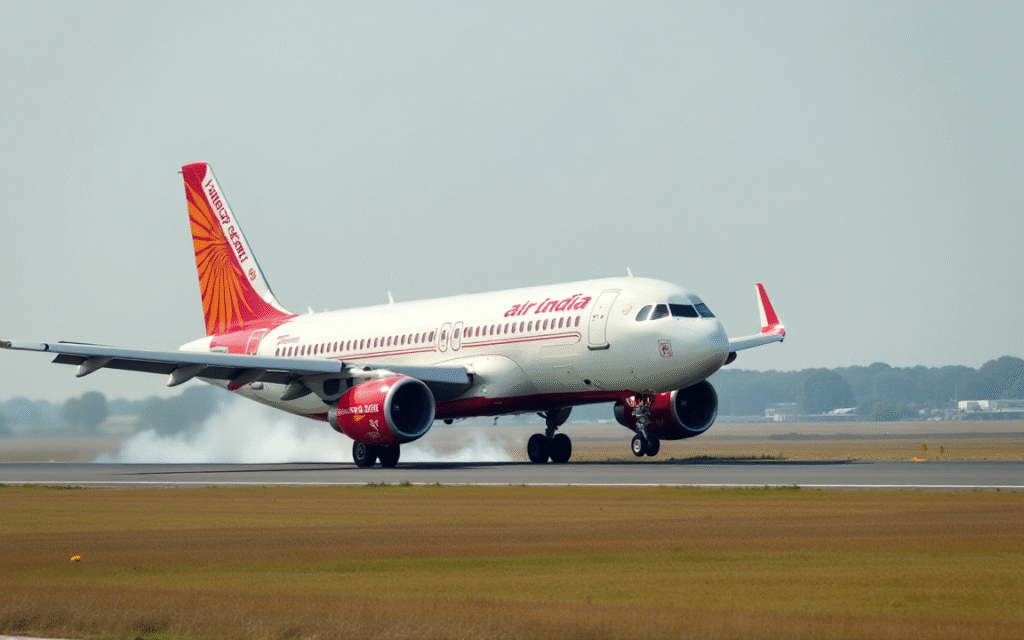
Air India announced on Wednesday a significant, albeit temporary, reduction in its international operations utilizing widebody aircraft.
The airline will cut these flights by 15% for the next few weeks, a decision driven by ongoing safety inspections and operational disruptions following the catastrophic crash of one of its Boeing 787 Dreamliners last week, which tragically claimed 241 lives.
The move to curtail international services comes as authorities continue their investigation into the crash of flight AI171, an incident that now stands as the world’s deadliest aviation disaster in a decade.
In a statement, Air India, which is owned by the Tata Group, explained that the flight reductions, effective until at least mid-July, are being implemented “to ensure stability of operations, better efficiency and minimise inconvenience to passengers.”
The airline provided an update on its fleet inspections, stating that checks had been completed on 26 of its 33 Boeing 787-8 and 787-9 aircraft.
These 26 Dreamliners have subsequently been cleared for service.
The remaining seven 787s are scheduled to undergo inspections in the coming days.
Furthermore, Air India indicated that additional checks are also planned for its fleet of Boeing 777 aircraft, underscoring a comprehensive approach to ensuring fleet safety.
Crash investigation continues: focus on engine history
Flight AI171, which was en route to London’s Gatwick Airport, crashed shortly after taking off from Ahmedabad.
The disaster resulted in the deaths of all but one person on board the aircraft and tragically claimed the lives of approximately 30 people on the ground.
Earlier on Wednesday, Tata Group chief Chairman N. Chandrasekaran addressed a key aspect of the investigation, stating that the specific aircraft involved in the crash had a clean engine history.
In an interview with Indian broadcaster Times Now, Chandrasekaran elaborated that Air India flight 171’s right engine was new, having been installed in March 2025.
He added that the left engine had last undergone servicing in 2023. The Dreamliner in question was equipped with GEnx engines manufactured by GE Aerospace.
Broader challenges
Beyond the immediate aftermath of the crash and the ensuing safety inspections, Air India also cited external factors contributing to its operational challenges.
The airline pointed to geopolitical tensions currently prevalent in the Middle East and “night curfews in many European and East Asian airspaces” as contributing factors behind a recent spate of flight cancellations.
These cancellations have reportedly totaled 83 over the past six days, highlighting the multifaceted pressures impacting the carrier’s international schedule.
The temporary reduction in widebody operations is an attempt to manage these combined disruptions more effectively.
The post Air India cuts 15% of global flights: what it means for travelers and the airline’s future appeared first on Invezz
https://invezz.com/news/2025/06/19/air-india-cuts-15-of-global-flights-what-it-means-for-travelers-and-the-airlines-future/


